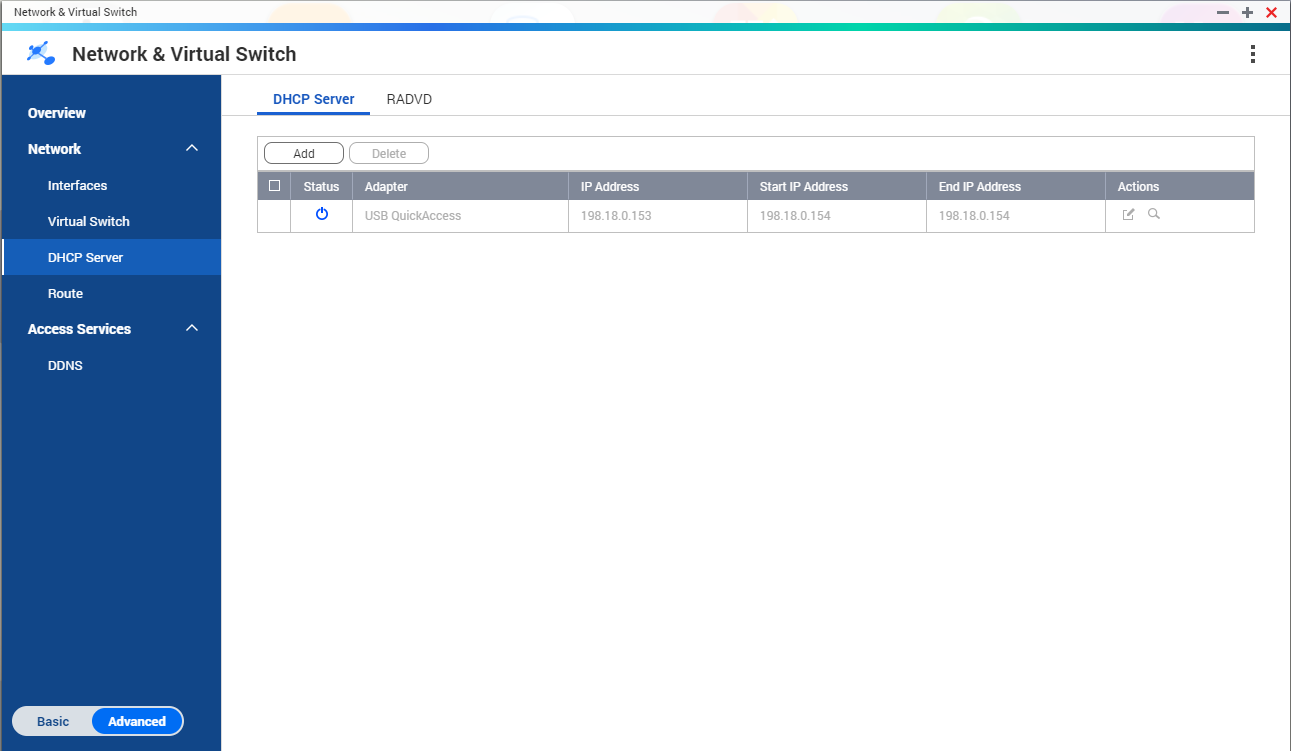The Dynamic Host Configuration Protocol (DHCP) allows devices in a TCP/UDP network to be automatically configured for the network as the device is booted. The DHCP service uses a client-server mechanism, wherein a DHCP server stores and manages network configuration information for clients and offers necessary data when a client requests the information. The information includes the IP address and subnet mask, the IP address of the default gateway, the DNS server IP address, and the IP lease information.
This screen controls the creation and management of DHCP servers. DHCP servers can assign IPv4 addresses to clients on the network, while RADVD servers assign IPv6 addresses.

Do not create a new DHCP server if one already exists on the network. Enabling multiple DHCP servers on the same network can cause IP address conflicts or network access errors.